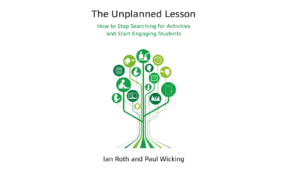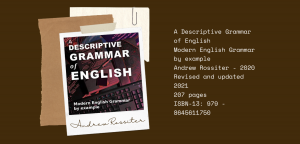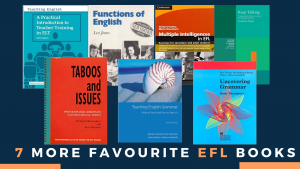By T. Veigga
I believe the most honest way of starting this review is by stating that it is going to be biased. I know both writers of Raise Up and I have a deep admiration for Ilá Coimbra and James Taylor. They are extremely knowledgeable, seriously committed to their professional development and are active members of the ELT community, helping several people through BRAZ – TESOL as well as through personal initiatives. I am going to talk about all the positive things I found in this book and while I am going to touch on some negatives, I have to say that I am strongly supportive of this book and what it represents.
In a way all reviews are biased because we filter whatever it is that we are reviewing through our views of the world. I will be analyzing this book taking my local context into account and why this book is relevant to me. In my country, Brazil, diversity should be taken more seriously.
To begin with, life expectancy for transgender people here is only 33 years. We have one of the highest LGBT+ mortality rates in the world. Police disproportionally kill black people and the president openly encourages them to become even more lethal. Those are just some examples of how tragic consequences arise from a society that has not been taught to respect, study, think critically and empathize with minorities. With this in mind, the mere existence of a book like Raise Up is commendable.
Something that first caught my attention was the layout. One does not expect independently published materials, especially when they are not commercial, to be this good. The book looks very professional and this impacts on teachers and learners alike. As Ilá and James point out at the beginning of the book, coursebooks have authority and I must add that part of this authority is conveyed by a certain kind of aesthetic. The Information is easy to follow, illustrations and pictures are overall of good quality, activities are numbered and color combinations are used in a way that is pleasing to the eye.
Raise Up is a book about diversity without being a book that focuses on diversity. The lessons do not revolve around LGBT+ issues, refugees or any of the other subjects that are listed in the About the book section. Instead, these are inserted in the lessons as part of day-to-day reality. As much as I believe we should openly discuss diversity in our English lessons, I am well aware that it is not a simple task and when teachers do so, they often have to deal with adverse consequences. With this in mind, I understand Ilá and James’ rationale to have an approach that is more towards the normalization of minority groups as part of society. An advantage of this approach is that it gives less room for questioning. For instance, the first lesson is about family and there is a lesbian couple. There is no mention to LGBT+ rights or any discussion that would allow students to voice any prejudices they might have. Unfortunately, if a student feels strongly about one of the minority groups in a lesson, they might still speak up and teachers need to be ready to deal with that. However, if that is the case, the teacher is better able to redirect the focus of the lesson to the overall context much quicker.
The lesson A long journey talks about refugees and reproduces a Whatsapp conversation between two people, one of them crossing a border in order to go to Europe. In the conversation, some people get lost and I personally found it hard to deal with. I could see my students were uncomfortable and the energy of the room changed drastically. This is not meant to discourage anyone from using this lesson in particular, but it might be a good idea for the teacher to further discuss this issue with students and bring more examples of uplifting refugee stories as well.
All in all, I wholeheartedly recommend Raise Up as a book that you can use to supplement your lessons. As it is actually a collection of lessons from different levels, it cannot be adopted as a regular coursebook. It is important to highlight that 100% of the proceeds go to Casa 1, a shelter that helps not only the LGBT+ community in vulnerable situations, but also locals. It is a beautiful project that needs to receive donations on a regular basis to continue doing an amazing job. As much as there is still hatred and bigotry, we teachers need to do our share to educate people as global citizens. I feel Raise Up is the perfect way to start doing that.




